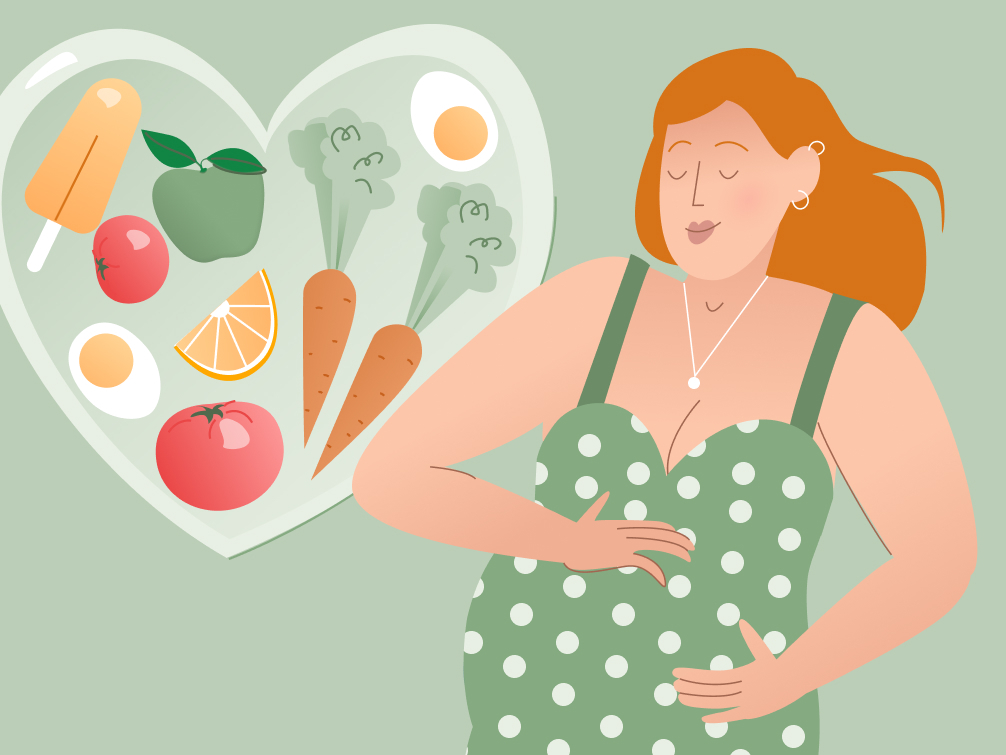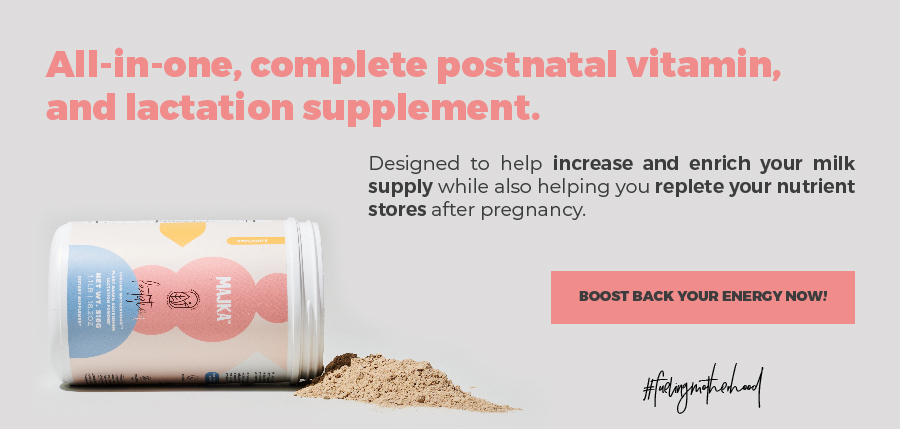
Striving for good nutrition is important during pregnancy because your body is going through so many changes. A growing baby needs a lot of nutrients, and your body needs extra energy and nutrients to support the pregnancy. Pregnant women should eat a variety of healthy foods from all food groups, including:
- Fruits
- Vegetables
- whole grains
- lean protein
- low-fat dairy
- healthy fats
Eating a nutritious diet is not only important for a pregnant woman’s health, but it can also help to prevent certain pregnancy complications, such as preterm labor, gestational diabetes, and high blood pressure.
Diet plays a significant role in the outcome of the pregnancy journey! If you consume nutrient-dense foods, it will promote your baby’s growth and development. It will also give you a better experience overall and can lessen symptoms of morning sickness, cramps, lethargy, etc. Taking the extra step to plan smart meals and snacks will set you up for success. Today we will dive into the nutritional value of food and the many ways we can achieve the suggested daily vitamin intake, regardless of different dietary preferences!
Vitamins That Support a Healthy Pregnancy
To sustain a healthy pregnancy and healthy development for your baby, it is important to choose the foods you consume wisely. Here are the names of just a few vitamins that aid in a healthy pregnancy: folate, vitamin d, vitamin b12, iron, calcium, DHA, and iodine. Let us review some of the foods containing these vitamins:
Folate
Spinach, kale, and arugula are bursting with many key vitamins, including folate! Taking folate during pregnancy is recommended, as it can prevent the risk of birth defects such as anencephaly or spina bifida.
Vitamin C and D
Oranges, grapefruit, lemons, and limes are also rich in folate! For example, just one orange contains 55 mcg of folate, (about 14% DV recommended). Citrus fruits are also a major source of vitamin c and potassium, as well as vitamin d.
Vitamin B12
Found in egg yolks, dairy products, malt cereal, etc., this vitamin can decrease the risk of your child being born with birth defects, as well as lessen the effects of morning sickness!
Iron
Found in leafy greens, fortified iron-rich cereals, beans, dried fruits like raisins or apricots, and red meats!
Calcium
Calcium-packed foods include dairy products, almonds, and leafy greens.
DHA
DHA can be found in various fish, seaweed, kelp, flaxseed, etc.
Iodine
Seaweed, kelp, table salt, and fortified cereals are all iodine-rich options.
Now that we have reviewed just some of the vitamins essential for a healthy pregnancy, we can review ways to achieve an intake of these regardless of diet preference!
How To Fit a Healthy Diet into Your Life
People with varying diet preferences sometimes face difficulty finding the nutrients needed to experience a healthy pregnancy journey. It is important to know that people with varying diet preferences can have a similar intake of the vitamins needed, only from differing sources. Someone with a vegan diet can achieve the same nutritional outcomes as someone who eats animal products.
When you are forming your prenatal meal plan, take the time to research what is the best option for your lifestyle. Here is a sample chart comparing the nutritional values of foods for differing diets (animal products vs. plant-based):
- ½ cup of quick oats = 50 oz of steak (50 g folate)
- 1 cup of quinoa (8g) contains slightly higher amounts of protein than 1 egg (6g)
- 2 cups of spinach (200 mcg folate) = 3 oz beef liver (215 mcg folate)
- 1 cup mushrooms (18.4 mcg vitamin d) ~= 3 oz cooked trout (16.2 mcg vitamin d)
- 3 cups of kale (300 mg calcium)= 1 cup of milk (305mg calcium)
- ¾ cup bran cereal (6 mcg vitamin b12) = 1 cup milk (1.5 mcg vitamin b12)
- 3 cups spinach (2.5 mg iron) = 100 g beef (2.5 mg iron)
- 3 cup chopped kale (300 mg calcium) = 1 cup milk (300 mg calcium)
- 2 tbsp flaxseed oil (1400 mg DHA) = 3 oz salmon (1250 mg DHA)
- ½ cup buckwheat (12 mg iodine) vs. 300 g seaweed (12 mg iodine)
Whether you are fueling your body with a plant-based diet or an animal-based diet, it is possible to maintain recommended daily vitamin intake!
In conclusion, nutrition is incredibly important during pregnancy! It is essential to eat nutritious foods during pregnancy so that both you and your baby are healthy. Pregnancy is a time when good nutrition is especially important. What you eat and drink during pregnancy can affect your health and the health of your baby.
It is important to eat a variety of healthy foods, including fruits, vegetables, whole grains, etc. Pregnant women should also avoid unnecessary exposure to chemicals and other substances that could be harmful to the developing baby. You should always talk to your healthcare provider when you are forming a plan for prenatal care!
- https://www.webmd.com/diet/difference-between-animal-protein-plant-protein
- https://www.kevinstock.io/health/vitamins-and-minerals-plants-vs-animals/
- https://www.pregnancybirthbaby.org.au/vitamins-and-supplements-during-pregnancy
- https://www.healthline.com/nutrition/vitamin-b12-foods#foods-list
- https://www.hsph.harvard.edu/nutritionsource/calcium/
Avery Reckers





